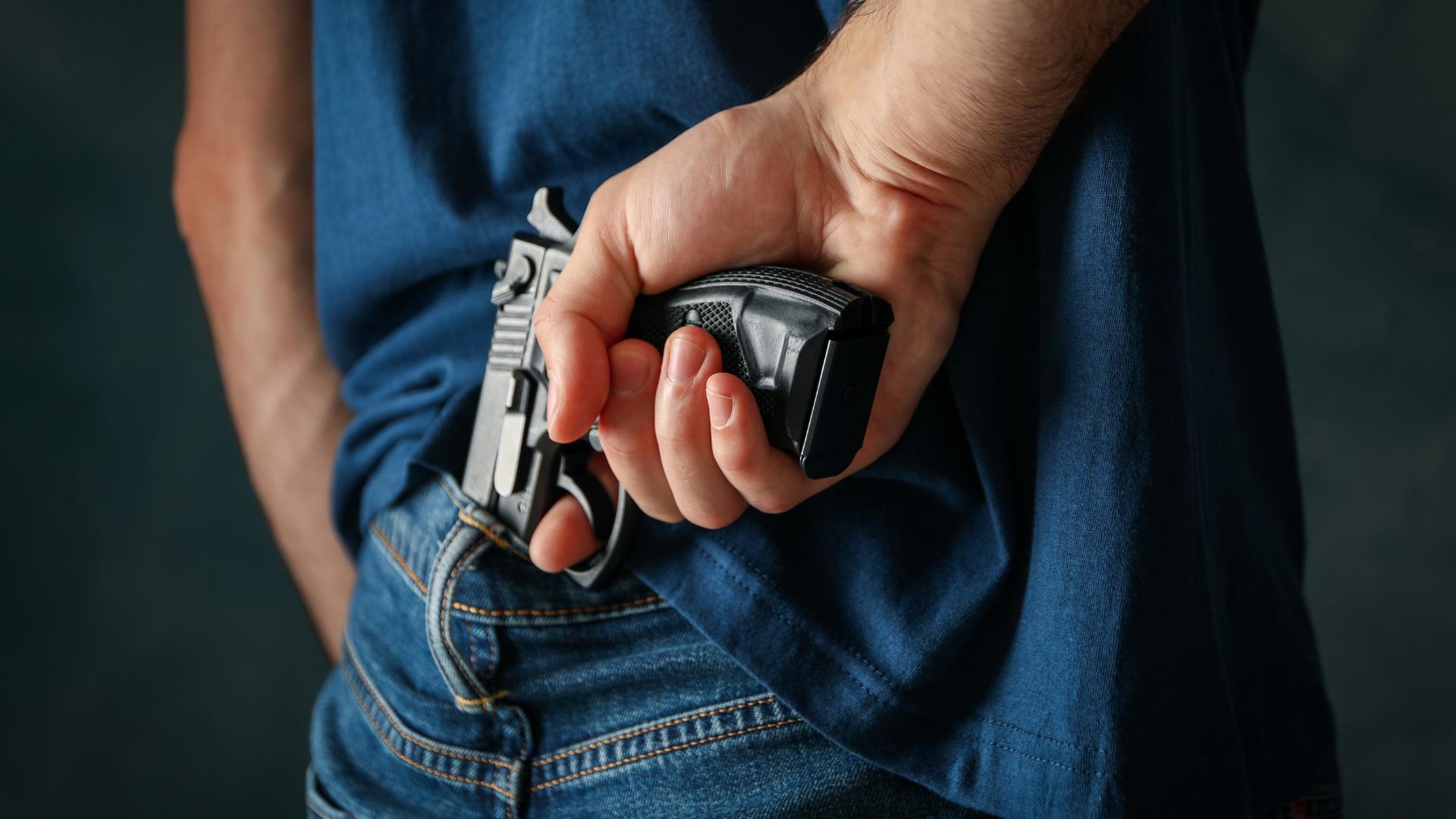
From 1999 until 2016, Florida’s 10-20-Life took the justice system away from judges and forced them to sentence individuals charged with felony crimes involving a firearm to either 10, 20, or 25 years to life in prison. The minimum mandatory prison terms did not allow the judges to consider the circumstances surrounding the crime and took away their right to use discretion when handing out a prison sentence.
After Senate Bill 228 was passed in 2016, the harsh sentencing guidelines in place from the 10-20-Life Law were removed. Judges were given the ability to sentence individuals using their own discretion and handing out sentences based on the punishment the crime warranted.
Even though the laws surrounding felony charges involving a firearm have changed, the punishment for being convicted of these crimes is still harsh and requires the best criminal defense strategy. Tampa criminal defense attorney Andrew Buda served as a prosecuting attorney for years, so he understands how they approach these types of cases. Using this knowledge, Andrew Buda will build a strong defense to fight the charges the prosecution has brought against you.
To discuss your Tampa felony charges involving a firearm with an experienced criminal defense attorney, schedule a free consultation at Buda Law today by calling 813-322-2832.

What Was the 10-20-Life Law in Florida?
Florida Statute 775.087, also known as the 10-20-Life Law, was created to deter individuals from committing violent crimes. The law was passed in 1999 after Jeb Bush was elected Governor. During his campaign, Bush used the proposed law as a vital element to push for harsher sentencing requirements for those convicted of forcible felonies involving firearms. Before his election in 1999, the minimum mandatory sentence for using a firearm during a felony was three years. Over 30,000 violent felonies were committed involving the use of firearms in 1998, the year that Bush was campaigning for governor.
Statute 775.087 states that any felony that involves the use or attempted use of a firearm must receive a mandatory minimum sentence of 10, 20, or 25 years to life. If the firearm used in the crime was an assault weapon or machine gun, the punishments were more severe and would result in a minimum mandatory sentence of 15, 20, or 25 years to life. This law also stated that anyone with an underlying felony conviction must be sentenced to 10-20-Life terms in addition to and consecutively.
Florida 10-20-Life Statute
Florida Statute 775.087 was controversial when it was passed in 1999 since it forced judges to sentence crimes that fell under the statute to 10, 20, or 25 years to life in prison. Regardless of the circumstance surrounding the crime, the law required judges to use the sentences outlined in the statute. Judges were not able to use discretion when sentencing a case and were forced to follow the statute even if the crime didn’t warrant such strict sentencing.
Case Examples
The sentencing of Orville Lee Wollard III in 2008 is one of the most infamous cases involving the 10-20-Life Law. Wollard is currently serving a 20-year sentence for firing a warning shot inside his home to scare his daughter’s then-boyfriend into leaving the house. During the incident, the then-boyfriend would not leave the home, so Wollard fired his gun into the wall to get him to leave. No one was harmed during the incident but under the 10-20-Life Law, Wollard was sentenced to 20 years for aggravated assault involving a firearm and two other counts. One of the additional charges was for child abuse since the bullet could have hit his daughter. During Wollard’s sentencing, the judge stated that if it were not for the mandatory minimum sentencing guidelines in place, he would have used his own discretion when handing out the prison sentence. Instead of considering the extenuating circumstances surrounding Wollard’s crime, the judge was forced to sentence him to the required 20 years in prison. Wollard filed for clemency in 2015 but was denied.
Another notable case involving Florida’s 10-20-Life Law is that of Eric Patrick Wright. In 2013, Wright was involved in a struggle involving his ex-girlfriend and the mother of his child. She came into his home, and they fought when she refused to leave. Wright fired his gun into the ground in order to scare her into leaving. Due to Florida Statute 775.087, Wright faced a mandatory minimum sentence of 20 years. Like Wollard’s case, Wright’s judge also stated that the charges were unjust and that they would have issued a lesser punishment if the law had not been in place. In 2017, Wright tried appealing his conviction, but it was upheld since he was sentenced under the 10-20-Life Law. However, following the appeal, a judge on the panel stated that Wright was unjustly sentenced for his crime.

Florida Statute § 775.087
As stated above, Florida Statute 775.087 requires any felony that involves the use of firearms to be punishable for 10, 20, or 25 years to life. Under this statute, judges were forced to sentence the following felony offenses, either committed or attempted, using this law regardless of the circumstances surrounding the crime:
- Aggravated assault
- Aggravated battery
- Sexual battery
- Murder
- Arson
- Burglary
- Robbery
- Kidnapping
- Home invasion
- Carjacking
- Escape
- Aggravated child abuse
- Drug trafficking
- Aggravated stalking
- Felon in possession of a firearm
- Aircraft piracy
- Aggravated abuse of an elderly person or disabled adult
- Unlawful throwing, discharging, or placing a bomb or other destructive device
According to Florida Statute 775.08, judges were required to use the following sentences for the above crimes:
- 10 years: If the individual was convicted of attempting or committing any of the above felonies while armed with a firearm or destructive device.
- 20 years: If the individual fired the gun.
- 25 years to life: If the individual hurt or killed another person when they fired the gun.

Senate Bill 228 Repealed 10-20-Life Law
Under the 10-20-Life Law, judges were forced to sentence individuals based on the guidelines in place by the law. No matter what circumstances surrounded the crime committed, the 10-20-Life law tied judges’ hands and essentially took away a crucial part of their job – the sentencing. Throughout the years that this law was in place, judges constantly voiced their displeasure in handing out stricter sentences than they would have if they had the choice – case in point, Orville Lee Wollard III and Eric Patrick Wright.
In 2016, Florida Governor Rick Scott signed into law Senate Bill 228, which overturned the 10-20-Life Law. During the time that this law was in effect, more than 15,000 individuals were sentenced using the guidelines set forth by Florida’s 10-20-Life Law.
Unfortunately, Senate Bill 228 does not benefit those currently serving mandatory prison sentences that were handed out under the 10-20-Life Law. Those serving time will have to complete their current prison sentences.
What This Means for Those Accused of Gun Crimes in Florida
With Senate Bill 228 in place, judges now have the freedom to sentence crimes using their own discretion without being forced to follow the statute. The Bill, however, does not affect those currently serving time for sentences handed down under the old Law. For example, Wright appealed his conviction after Senate Bill 228 was passed, but because individuals are not eligible for early release under the 10-20-Life law, the appellate judges were not able to grant his appeal. Even after the approval of Senate Bill 228, judges are still tied to Statute 775.087 mandatory sentencing guidelines for those currently serving time.
While Senate Bill 228 may not benefit those currently incarcerated, it affects those facing weapons charges. The sentencing surrounding gun crimes in Florida can still be steep, so hiring an experienced criminal defense attorney is key.

Facing Weapons Charges? Call Tampa Criminal Defense Attorney Andrew Buda Today
While the laws have changed over the years to give judges more say in sentencing individuals accused of committing felony crimes involving firearms, you can still face harsh punishments that change the course of your life forever. Having the best legal representation facing your felony charge involving a firearm can mean the difference between a prison sentence or dismissal.
Former Prosecutor Andrew Buda uses his experience on the other side of the courtroom to provide you with the best defense strategy possible. Prosecutors will fight aggressively now that the new Senate Bill 228 is in place, removing their power to prosecute those facing felony charges with firearms. You need a defense attorney that will fight back and ensure that your rights are being upheld.
If you’re facing criminal charges related to possessing a firearm, contact Tampa criminal defense attorney Andrew Buda by calling 813-322-2832 or completing our online contact form today.
